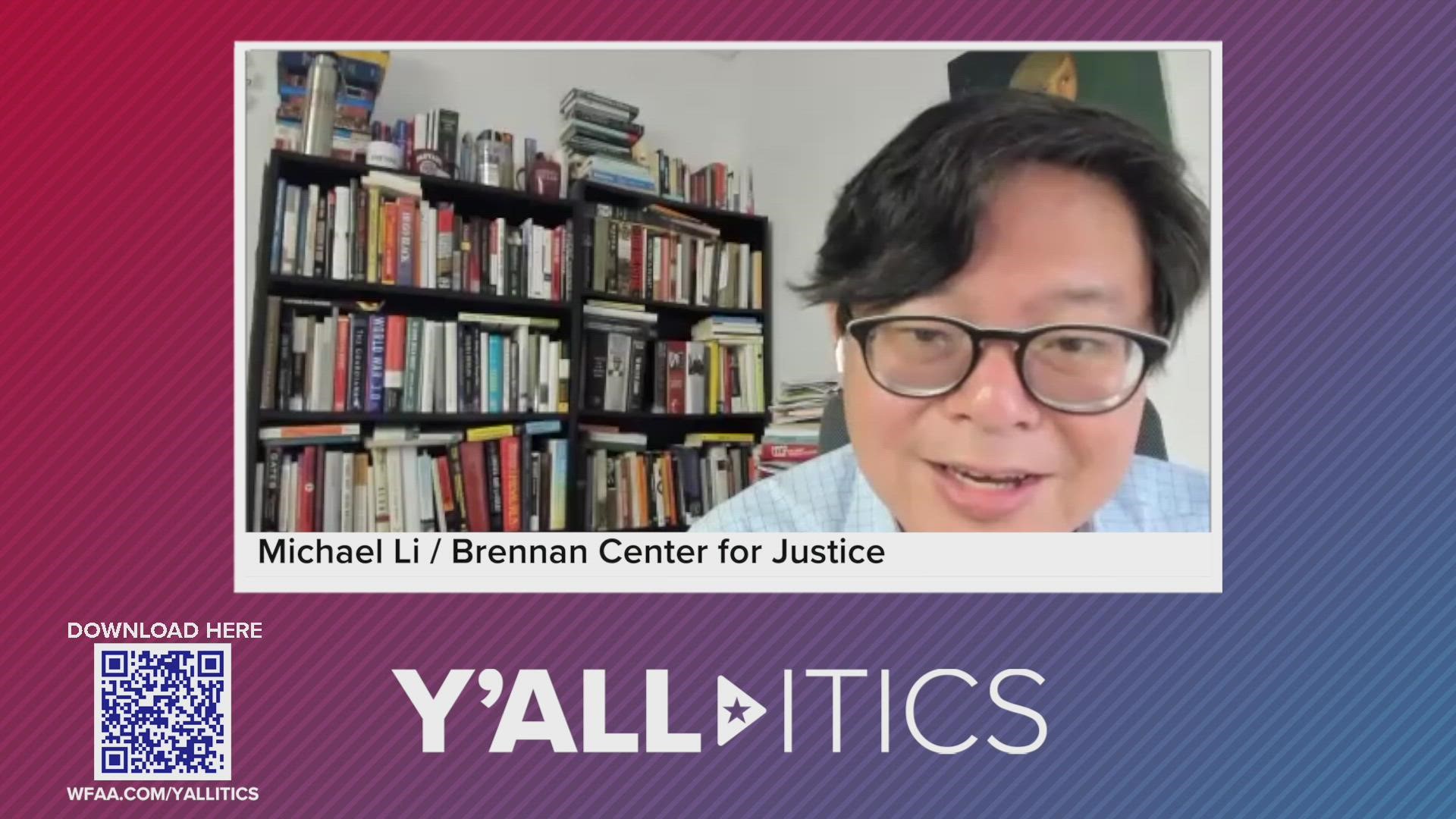DALLAS — Passions have already been flaring in Austin, but the temperature will soon get much hotter under the Capitol dome and it’s all because of numbers.
After being delayed for months by the pandemic, the Census Bureau says it will finally release its data used to draw Congressional districts on Aug. 12.
“I like to call it a every 10-year Olympics," explained Michael Li on the latest episode of Y'all-itics. "And just like there are Olympic sports that you don't necessarily pay attention to except when the Olympics occur, then you pay rabid attention to them, the same with redistricting. Except that the consequences are really, really high."
Before he became the senior counsel for the Brennan Center's Democracy Program, Li went to school and worked in Texas, so he knows the state well. The national expert on redistricting said the Census will shape politics in this state for the next 10 years.
“It will determine not only who wins the next election in 2022, but who holds power in states like Texas for the rest of the decade and whether communities are treated fairly, particularly communities of color, who in Texas provided over 90 percent of the state's population growth last decade,” Li explained to the Jasons.
Li said he regards Texas as one of the "highest risk states" for what he warned could be the most aggressive gerrymandering in U.S. history in this cycle. He said the number one factor that determines whether a state has problems with redistricting is whether one political party controls the entire process.
“And when that's the case - whether it's Democrats in control or Republicans in control - we know that partisan considerations are there first and foremost, and maps are drawn mostly in secret and the decisions are made really within one caucus, and that is sort of the real danger,” Li described.
Of course, here in Texas, the GOP has had a firm grip on power for decades and they have no intention of giving it up. Democrats walked out at the end of the regular legislative session to block the GOP election bill and then decamped for D.C. throughout the first special session and now into the second special session to continue to block passage. But the Democrats have yet to reveal a strategy about how they might approach the redistricting debate.
Li said the process of redistricting has also changed dramatically in the 21st Century. He said four or five maps used to be drawn by hand and then lawmakers would, in essence, choose the best one. But he said technology is such that, these days, hundreds of thousands of maps can be drawn in a matter of hours. And that, Li told the Jasons, is why redistricting has morphed from a dark art into a dark science.
“You have much more sophisticated data about voters based on what kind of car you drive, what you post on Instagram, where you shop, and so, you're able to construct very sophisticated models about people," Li explained. "Are you a Democrat, or are you a Republican? How strong a Democrat or Republican? Are you a presidential year voter or do you vote in every election? And so you're able to draw maps with micro-precision."
In the latest episode of Y’all-itics, Li also explained why a heavily partisan redraw of Congressional boundaries is a threat to democracy and undermines the concept that each Texan’s vote matters equally. Listen now and please be sure to subscribe.
Subscribe to Y'all-itics wherever you get your podcasts: Apple Podcasts | Spotify | Stitcher | Amazon Music

